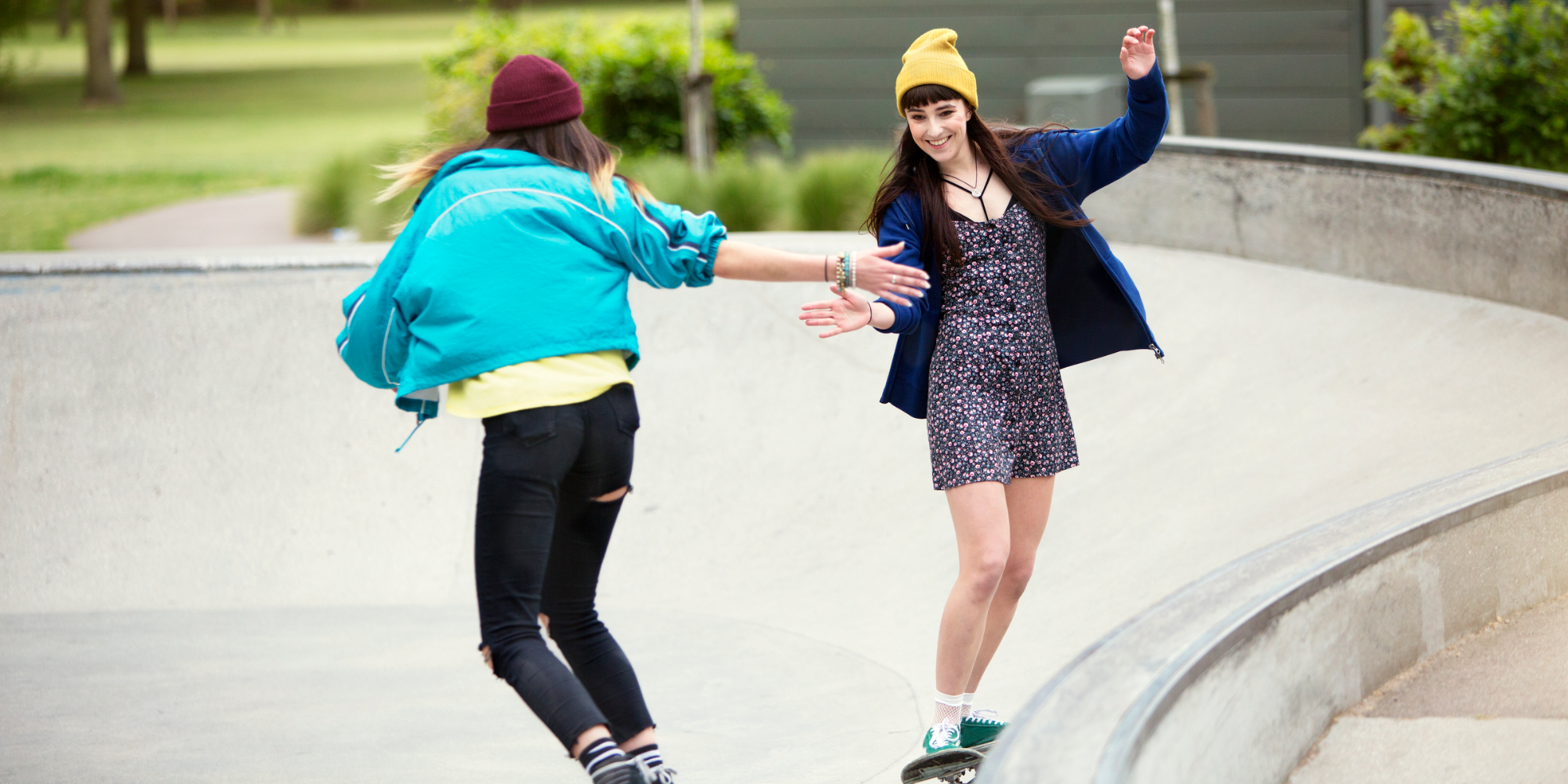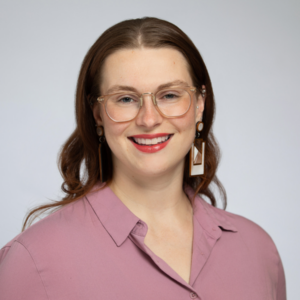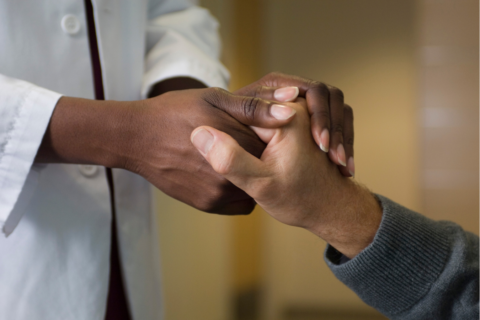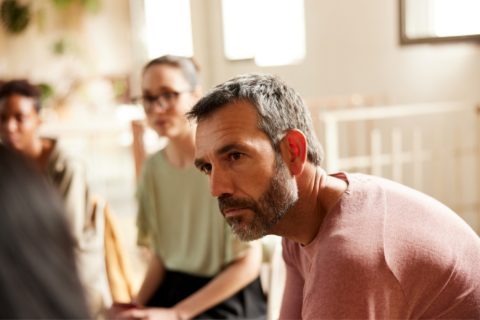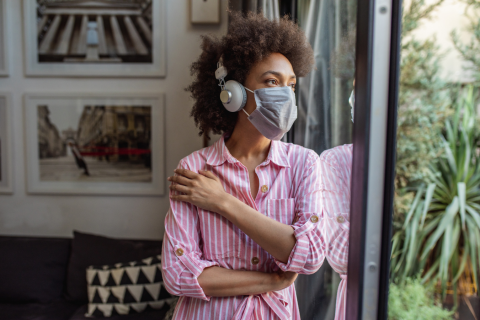Local governments are struggling to help their communities navigate a growing mental health crisis. According to the World Health Organization anxiety and depression increased by 25% worldwide in the first year of the COVID-19 pandemic, with youth and women most severely affected. At the same time, the healthcare workforce has dwindled, affecting the number of providers available to treat mental illness. Mental Health America estimates that there are 350 individuals for every one mental health provider in the U.S. The Surgeon General’s advisory Our Epidemic of Loneliness and Isolation from May 2023 outlines how loneliness and isolation are “profound threats” to health.
Small cities in rural areas face even more challenges to connecting residents with the services they need. Seeking solutions, some local leaders are exploring how the healing power of the arts can be leveraged to address city-wide mental health challenges.
How Do the Arts Improve Mental Health?
The arts can positively impact public health by addressing issues related to collective trauma, racism, social exclusion and isolation, and chronic disease. Research from the University of Florida shows the arts can alleviate depressive symptoms, improve cognition and memory, and enhance overall well-being in older adults. Among adolescents, participation in arts and cultural activities is shown to reduce loneliness, risk of substance use, and behavior and attention problems, as well as result in fewer reportedly anti-social or criminalized behaviors and improved self-control.
City Innovation Feature: Rhinelander, Wisconsin (pop. 8,000)
In 2021, a group of high school youth called Over It began advocating for the City of Rhinelander, WI to address social isolation and mental illness among youth by building a skatepark. Following the death of one of their founding members to mental illness, Over It attended a Rhinelander City Council meeting to renew their plea.
Meanwhile, Marshfield Clinic Health System, the local community health care provider, conducted a Community Health Needs Assessment which revealed 87% of people surveyed could not easily access services for mental health treatment. According to the Oneida County 2021 Youth Risk Behavior Survey[1], 51% of students said that they rarely or never get emotional help when needed and 16% of students seriously considered suicide in the previous 12 months.
[1] Tortora, Owen, McCoy, Katherine, and Frederick, Carl. 2021 “Oneida County 2021 Youth Risk Behavior Survey Results (High School Version)”. Madison: Wisconsin Department of Public Instruction.
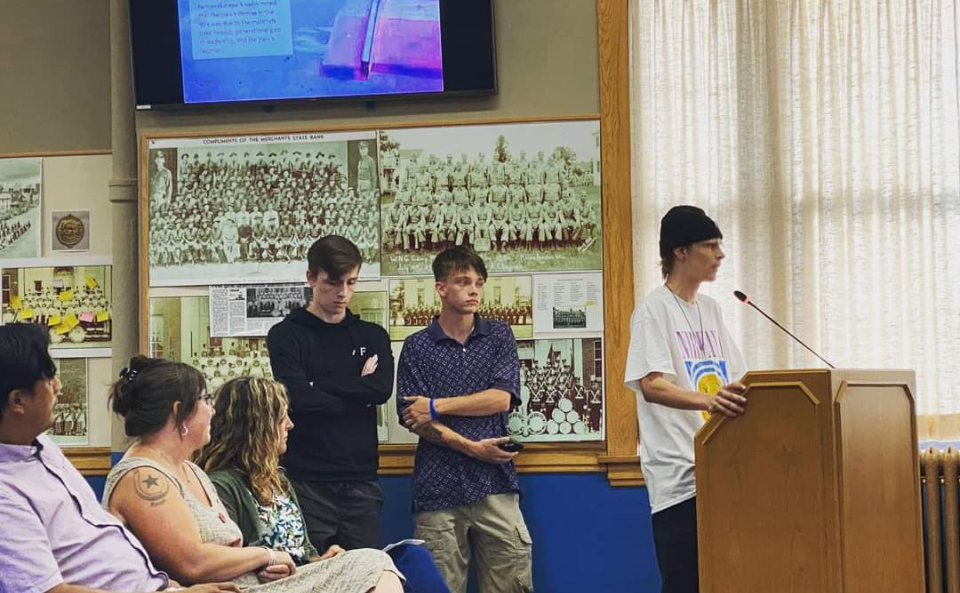
Local arts organization ArtStart stepped in to assist Over It with their organizing efforts. In early 2022, ArtStart, the City of Rhinelander, and Marshfield Clinic Health System partnered to join NLC’s and One Nation One Project’s Improving Community Health and Resilience through the Arts initiative to build partnerships across the government, arts, and health sectors to achieve improved public health outcomes and increased social cohesion.
This cross-sector partnership formed because of the need to try something new to support mental health. “When you think of mental health, you think of going to health care. That’s not the case anymore. In the US, we are short of mental health providers. We need to approach mental health problem solving from other angles,” says Jordyn Fink, Community Benefits Coordinator at Marshfield Clinic Health System.
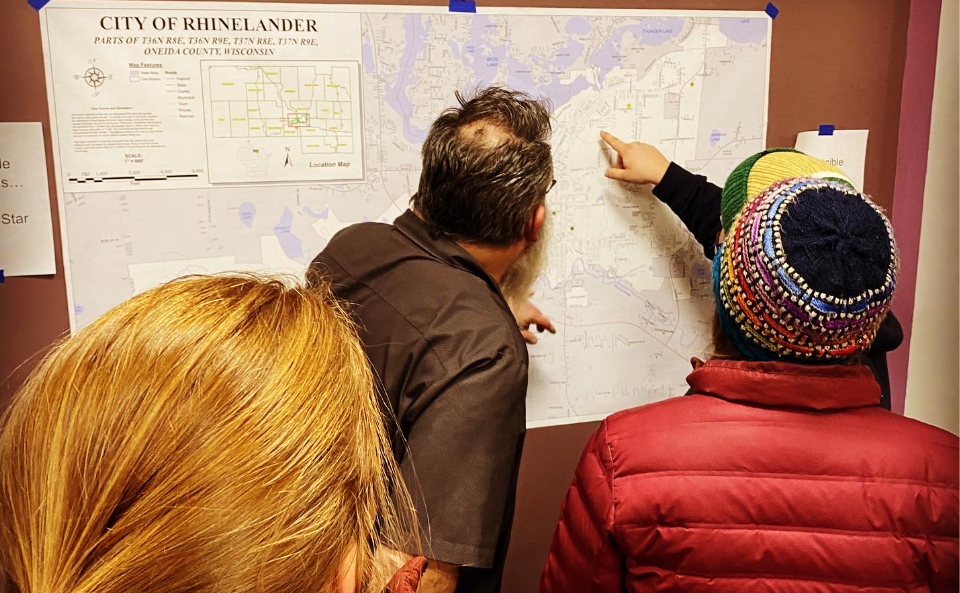
ArtStart has supported the youth activists by:
- Working with the city to support a community-wide feasibility study;
- Connecting Over It with City of Skate, public artists experienced in skatepark advocacy and youth leadership development;
- Creating a pop-up skate park and temporary public art elements;
- Organizing a skate park field trip to Minneapolis to assess elements to include in Rhinelander’s park;
- Creating a Youth Arts Studio space inside ArtStart;
- Helping Over It plan to gain 501(c)(3) non-profit status;
- Connecting with other area-wide mental health resources to pool resources, advocacy, and raise awareness;
- Connecting youth with local artist mentors;
- Connecting youth with training opportunities in design, podcasting, video, and audio production.
As a result of this partnership and the activism of Over It, the City has developed preliminary plans for a new skatepark. “I hope we get to help people with their mental health and show them they’re not alone,” says Over It member Angel Quandt. The city has earmarked a baseline amount of funding from the city budget and will soon embark on a fundraising campaign. After partnering with ArtStart, the project has expanded to involve more local and statewide partners, bringing more resources to the table and creating more opportunities for community participation.
Why should cities care about playing a role in the mental health of youth in their communities?
“The teen years are crucial for developing empathy, forming a sense of community, and discovering how to overcome challenges. Giving kids a place to gather, that doesn’t cost them anything, that’s safe and [sends] a clear message that we care about what they care about only fosters stronger relationships with our future leaders”
Rhinelander Council President and District 7 Alderperson Eileen Daniel,
“[Mental health issues] affect a big number of young adults and teens. By being aware of the warning signs, and what to look out for, you could be saving someone’s life.”
Over It member Victoria Achterberg, age 19
How can other small or rural cities get started on this work?
- Connect with local health systems, especially community health centers, to understand the scope of the need and current barriers to care.
- Connect with community-based organizations, such as arts and culture institutions and other social service and education nonprofits, to understand community resources and possibilities for building on existing work.
- Engage your city’s public or non-profit local arts agency, to identify, support, and help build capacity for artists, creative arts therapists, and arts and culture organizations.
- Determine action priorities: how can your city help address needs or reduce barriers? Look into: developing workforce development initiatives; increasing public amenities to support social cohesion; supporting awareness of existing resources; supporting the expansion of telehealth services, etc.
- Explore funding sources, including new federal resources that may be available for expanding mental health services.
- Connect with NLC! Email gempler@nlc.org for more information.
“In rural communities, the key is really to leverage resources and partnerships. Civic engagement and art go hand in hand and can often address pressing issues and community challenges by raising awareness, bringing people together and creating opportunities to think outside the box about how to get things done” says Melinda Childs of ArtStart. “The key lies in collaborations and partnerships; figure out where your goals align and play to each partner’s strengths!”
[1] Tortora, Owen, McCoy, Katherine, and Frederick, Carl. 2021 “Oneida County 2021 Youth Risk Behavior Survey Results (High School Version)”. Madison: Wisconsin Department of Public Instruction.
Authors: Georgia Gempler (NLC), Melinda Childs (ArtStart), Jordyn Fink (Marshfield Clinic Health System), Carrie Mikalauski (Alderperson, City of Rhinelander), Marete Wester (Americans for the Arts)
